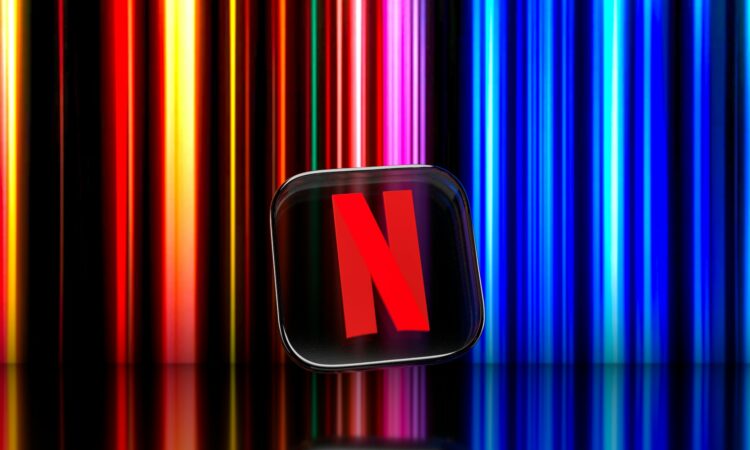- 1. The Evolution of Netflix
- 2. The Streaming Revolution
- 3. Original Content and Rise of Netflix Originals
- 4. Data-Driven Personalization
- 5. Global Expansion and Cultural Impact
- 6. Challenges and Competition
- 7. Technological Innovations and Quality Standards
- 8. Future Trends and Challenges
- Conclusion
In the era of on-demand streaming, Netflix has emerged as a global entertainment giant, reshaping the way we consume content. Founded in 1997 as a DVD rental-by-mail service, Netflix underwent a revolutionary transformation by shifting its focus to online streaming in 2007. Since then, it has become synonymous with binge-watching, original content, and the democratization of entertainment. This article explores Netflix’s journey, its impact on the entertainment industry, and the factors that have contributed to its unprecedented success.
1. The Evolution of Netflix
Netflix’s journey began with a simple idea – providing a convenient way for people to rent DVDs without the hassle of late fees. The company disrupted the traditional video rental market by introducing a subscription-based model allowing users to rent DVDs online and have them delivered to their doorstep. This innovative approach laid the groundwork for Netflix’s future endeavors.
The turning point came in 2007 when Netflix shifted its primary focus to streaming, embracing the potential of the internet to deliver content directly to consumers. This move marked the beginning of a new era in entertainment, as Netflix moved from being a DVD rental service to a streaming powerhouse.
2. The Streaming Revolution
Netflix’s decision to pivot to streaming was a game-changer. The streaming model offered subscribers the freedom to watch content anytime, anywhere, and on multiple devices. This shift aligned with the changing preferences of consumers increasingly looking for on-demand, personalized viewing experiences.
The convenience of streaming and a vast library of content rapidly attracted a massive subscriber base. Netflix’s streaming service became accessible globally, breaking geographical barriers and providing diverse content to audiences worldwide.
3. Original Content and Rise of Netflix Originals
While Netflix initially relied on licensing content from other studios, it soon recognized the need for exclusive and original programming to differentiate itself in a crowded market. The introduction of “House of Cards” in 2013 marked Netflix’s foray into original content production. The success of this political drama series demonstrated that streaming platforms could create high-quality, binge-worthy content that rivaled traditional television.
Since then, Netflix has invested heavily in producing original series, films, documentaries, and stand-up specials. The platform has given creative freedom to filmmakers and storytellers, resulting in critically acclaimed productions like “Stranger Things,” “The Crown,” and “Narcos.” The emphasis on original content attracted new subscribers and positioned Netflix as a major player in the entertainment industry.
4. Data-Driven Personalization
A key factor in Netflix’s success is its sophisticated recommendation algorithm. By analyzing user viewing habits, preferences, and ratings, Netflix curates personalized content recommendations for each subscriber. This data-driven approach enhances the user experience, keeping viewers engaged and encouraging them to explore a diverse range of titles.
The recommendation algorithm benefits users by suggesting content tailored to their tastes and aids Netflix in content acquisition and production decisions. This data-driven strategy contributes to the platform’s ability to predict and create content that resonates with its global audience.
5. Global Expansion and Cultural Impact
Netflix’s commitment to global expansion has been a strategic cornerstone of its success. The platform’s availability in over 190 countries has allowed it to tap into diverse markets, catering to varied cultural preferences. By investing in localized content, including international series and films, Netflix has successfully transcended cultural boundaries, creating a truly global entertainment platform.
Original content from different parts of the world, such as “Money Heist” from Spain, “Dark” from Germany, and “Sacred Games” from India, has gained international acclaim, showcasing Netflix’s ability to appeal to a broad and multicultural audience. This global approach has not only expanded Netflix’s subscriber base but has also contributed to the platform’s cultural impact on a worldwide scale.
6. Challenges and Competition
While Netflix has enjoyed unprecedented success, it has not been immune to challenges. The rise of competing streaming services, such as Amazon Prime Video, Hulu, Disney+, and others, has intensified the battle for subscribers. This increased competition has led to bidding wars for content licenses and the development of exclusive deals with production studios and talent.
Moreover, the fragmentation of the streaming landscape has raised concerns about subscription fatigue among consumers who may find themselves subscribing to multiple platforms to access their favorite content. Netflix’s response to this challenge has been to double down on original content production, creating a library of exclusive titles that set it apart from competitors.
7. Technological Innovations and Quality Standards
In addition to content, Netflix has continually pushed the boundaries of technological innovation. The platform’s commitment to delivering a seamless streaming experience has led to advancements in video compression, adaptive streaming, and offline viewing capabilities. These technological innovations contribute to a user-friendly experience, regardless of the viewer’s internet connection or device.
Netflix’s emphasis on delivering content in high definition (HD) and, in some cases, ultra-high definition (UHD) has set quality standards for the industry. The platform’s investment in cutting-edge technologies ensures subscribers can enjoy a cinematic experience in their homes.
8. Future Trends and Challenges
Looking ahead, Netflix faces a future marked by both opportunities and challenges. The streaming landscape will continue to evolve, with emerging technologies like virtual reality (VR) and augmented reality (AR) potentially shaping the next frontier of entertainment. Netflix’s ability to adapt to these trends and continue innovating will be crucial for its sustained success.
On the other hand, the intensifying competition in the streaming space requires Netflix to maintain a delicate balance between investing in original content, managing production costs, and retaining subscribers. The platform’s response to market dynamics, changing consumer behavior, and technological advancements will determine its position in the highly competitive entertainment industry.
Conclusion
In the span of a few decades, Netflix has transformed from a DVD rental service to a global streaming giant that has redefined the entertainment landscape. Its commitment to innovation, original content, global expansion, and personalized user experiences has set a benchmark for the industry. As Netflix continues to navigate the evolving landscape of on-demand streaming, its journey remains a testament to the power of adaptability, customer-centricity, and the relentless pursuit of excellence in the digital age.






